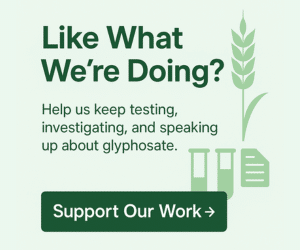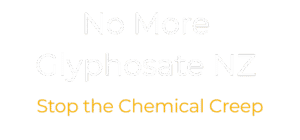When political portfolios matter more than expertise, who protects the public?
Because when it comes to glyphosate — the chemical sprayed across wheat, oats, and barley, and turning up in our honey and cereals, New Zealanders might assume the ministers responsible for protecting us bring specialist knowledge or at least a neutral perspective. Public health doctors, toxicologists, environmental scientists — people equipped to ask hard questions about risks and long-term safety.
But that’s not how our system works.
Instead, the ministers responsible for safeguarding our health and food supply are career politicians or industry insiders. And when you look closely, it’s hard not to wonder: are they really equipped to make life-changing decisions about something as far-reaching as glyphosate?
Meet the Ministers
Simeon Brown — Minister of Health
Brown’s professional experience is in politics and law, not medicine, public health, or toxicology. That means when evidence is presented about glyphosate’s links to cancer, endocrine disruption, or gut health, his ability to interrogate the science depends entirely on the quality — and the framing — of the briefings placed in front of him.
Shouldn’t the person responsible for safeguarding national health be able to do more than take summaries at face value?
Andrew Hoggard — Minister for Food Safety
A dairy farmer by trade and former President of Federated Farmers, Hoggard studied agricultural economics and has spent his career inside the farming sector — the very industry most reliant on glyphosate. Pre-harvest spraying is standard practice for grain crops, invisible to consumers but familiar to farmers.
That perspective shapes how risks are viewed. It’s not a legal conflict of interest, but it is a conflict of perspective. Can someone so steeped in glyphosate’s everyday use really bring an impartial lens when MPI proposes raising residue limits?
Penny Simmonds — Minister for the Environment
Simmonds’ background lies in education and management, most notably as CEO of the Southern Institute of Technology. She brings organisational experience, but not environmental science, ecology, or toxicology — the very fields most relevant to assessing the impacts of glyphosate on soil health, biodiversity, and waterways.
When tasked with evaluating the environmental fallout of chemical use, shouldn’t there be at least a baseline of scientific grounding?
Why It Matters
MPI is currently proposing to lift allowable glyphosate residues on staple crops from 0.1 mg/kg to 10 mg/kg — effectively a 9,900% increase. That’s framed as a trade harmonisation issue, but in reality it’s a public health and environmental decision.
Yet the people signing off on it are not experts in toxicology, environmental science, or long-term health impacts. Instead, they’re asked to rely on briefings from officials, submissions from lobby groups, and the ideological leanings of their parties.
Who decides what evidence makes it into their briefing notes — and how it’s interpreted?
A Systemic Flaw
This is bigger than glyphosate. It’s about how our political system operates.
Ministers are shuffled around like a game of musical chairs — health today, transport tomorrow, then environment. There’s no expectation of subject-matter expertise. That leaves decision-making wide open to industry influence and bureaucratic convenience.
- Lack of expertise means ministers can’t always ask the hard, informed questions that the public assumes are being asked.
- Ideological bias means decisions often default to party worldviews — free trade, deregulation, “cutting red tape” — rather than impartial assessments of risk.
And even when ministers want to engage with the science, how many could tell the difference between a peer-reviewed study, a media rewrite of a press release, or a lobbyist’s “fact sheet”? By the time evidence reaches their desks, it’s often repackaged, diluted, or spun. Without training, how can they tell the difference?
Where This Leaves Us
So here we are:
- A chemical linked to cancer, hormone disruption, and gut health concerns.
- A proposal to massively increase the amount of it allowed on our food.
- And ministers with little or no professional background in the science most relevant to those decisions.
New Zealanders deserve ministers who either bring expertise to the table or commit to truly independent, science-led processes that put public health first. Until then, the uneasy truth remains: the safety of our food and environment is being decided by those who may not even have the tools to ask the right questions.
And if they can’t ask the right questions — how can they possibly give us the right answers?
Image Source & Attribution
We’re grateful to the talented photographers and designers whose work enhances our content. The feature image on this page is by ras-slava.




